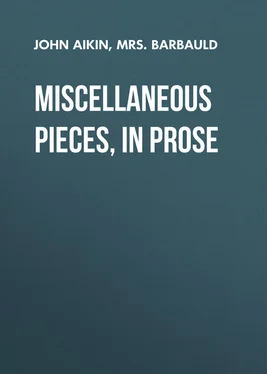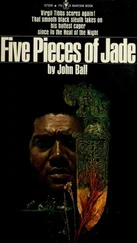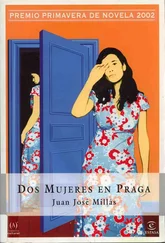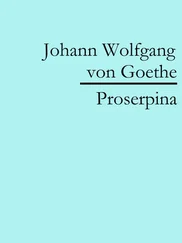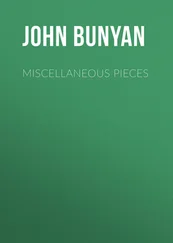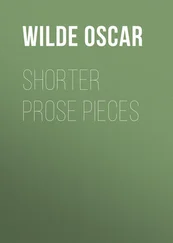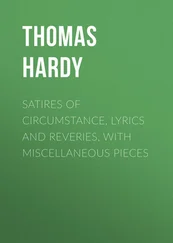John Aikin - Miscellaneous Pieces, in Prose
Здесь есть возможность читать онлайн «John Aikin - Miscellaneous Pieces, in Prose» — ознакомительный отрывок электронной книги совершенно бесплатно, а после прочтения отрывка купить полную версию. В некоторых случаях можно слушать аудио, скачать через торрент в формате fb2 и присутствует краткое содержание. Жанр: foreign_language, foreign_antique, foreign_prose, на английском языке. Описание произведения, (предисловие) а так же отзывы посетителей доступны на портале библиотеки ЛибКат.
- Название:Miscellaneous Pieces, in Prose
- Автор:
- Жанр:
- Год:неизвестен
- ISBN:нет данных
- Рейтинг книги:5 / 5. Голосов: 1
-
Избранное:Добавить в избранное
- Отзывы:
-
Ваша оценка:
- 100
- 1
- 2
- 3
- 4
- 5
Miscellaneous Pieces, in Prose: краткое содержание, описание и аннотация
Предлагаем к чтению аннотацию, описание, краткое содержание или предисловие (зависит от того, что написал сам автор книги «Miscellaneous Pieces, in Prose»). Если вы не нашли необходимую информацию о книге — напишите в комментариях, мы постараемся отыскать её.
Miscellaneous Pieces, in Prose — читать онлайн ознакомительный отрывок
Ниже представлен текст книги, разбитый по страницам. Система сохранения места последней прочитанной страницы, позволяет с удобством читать онлайн бесплатно книгу «Miscellaneous Pieces, in Prose», без необходимости каждый раз заново искать на чём Вы остановились. Поставьте закладку, и сможете в любой момент перейти на страницу, на которой закончили чтение.
Интервал:
Закладка:
There is another point of national or fashionable folly in which Comedy might be very useful; yet the attempt has been found dangerous; and perhaps the subject is too delicate for the stage, considering the abuses to which it is liable. I mean popular superstition, and priestcraft. Moliere, who with impunity had attacked every other species of folly, was almost ruined by exposing a hypocrite and a devotee; and the licentious ridicule of Dryden, and others of that age, was generally aimed, not only against superstition, but religion. The Spanish Friar , however, is an instance in which, with exquisite humour, the ridicule can hardly be blamed as improper; and it certainly did more hurt to Roman Catholic superstition than he could ever remedy by his scholastic Hind and Panther . How far the Minor comes under the same description, would, probably, be a subject of dispute.
Particular ranks and professions of men have likewise characteristical peculiarities which are capable of being placed in a ludicrous view; and Comedy has made frequent use of this source of ridicule. In exposing professional, as well as national absurdities, great illiberality and unfairness have been shewn; both, probably, from the same cause; a want of sufficient acquaintance with the whole characters, and taking a judgment of them from a few external circumstances. Yet, upon the whole, good effects may have arisen even from this branch of Comedy; since, by attacking a profession on a side where it was really weak, the members of it have been made sensible of, and have reformed those circumstances which rendered them ridiculous. A good-natured physician can never be angry at Moliere’s most laughable exhibitions of the faculty, when he reflects that the follies ridiculed, though exaggerated in the representation, had a real existence; and, by being held up to public derision, have been in a great measure reformed. The professors of law, being necessarily confined to forms and rules, have not been able to benefit so much from the comic ridicule of which they have enjoyed an equally plentiful share.
Besides the arrangements which nation and profession make of mankind, there are certain natural classes formed from the diversities of personal character. Although the varieties of temper and disposition in men are infinite, so that no two persons probably ever existed in whom there was an exact conformity, yet there are certain leading features of character which produce a general resemblance among numerous individuals. Thus the proud man, the vain, the sanguine, the splenetic, the suspicious, the covetous, the lavish, and so forth, are a sort of abstract characters which divide the whole human race amongst them. Now there are, belonging to all these, objects of ridicule which it has been the business of Comedy to exhibit; and though, perhaps, no one individual of each class perfectly resembled the person held to view on the stage, yet if all the circumstances exhibited are contained in the general character, it appears sufficiently natural. The Miser of Moliere is not a picture of any one miser who ever lived, but of a miser considered as forming a class of human characters. As these general classes, however, are few in number, they must be soon exhausted by the writers of Comedy, who have been obliged, for the sake of variety, to exhibit those peculiarities which are more rare and singular. Hence have been derived many pictures of that character which we call an humourist ; by which is meant a character distinguished by certain ludicrous singularities from the rest of mankind. The humourist is not without those marks of distinction which he may acquire, like others, from rank, profession, or temper of mind; but all these are displayed in him after a manner peculiarly his own, and dashed with his leading oddities. A love of what is uncommon and out of the way has often occasioned such extravagance in the representation of these characters as to disgust from their want of probability; but, where a due moderation is observed, and the peculiarities, though unusual, are such as really exist in nature, great entertainment may be derived from their exhibition. Of this kind are the admirable Misanthrope and Malade Imaginaire of Moliere; and the Old Bachelor and Sir Sampson Legend of Congreve.
From hence it appears but a small gradation to the exhibition of individuals upon the stage; and yet the difference is important and essential. That which marks out the distinction between individuals of the same species is something entirely uncommunicable; therefore the rational end of Comedy, which is the reformation of folly, cannot take place in personal ridicule; for it will not be alledged that reforming the person himself is the object. Nor can it scarcely ever be just to expose an individual to the ridicule of the stage; since folly, and not vice, being the proper subject of that ridicule, it is hardly possible any one can deserve so severe a punishment. Indeed the exposing of folly can scarcely be the plea; for all the common, or even the rarer kinds of folly lie open to the attack of Comedy under fictitious characters, by means of which the failing may be ridiculed without the person. Personal ridicule must therefore turn, as we find it always has done, upon bodily imperfections, awkward habits, and uncouth gestures; which the low arts of mimickry inhumanly drag forth to public view, for the mean purpose of exciting present merriment. In the best hands, personal Comedy would be a degradation of the stage, and an unwarrantable severity; but in the hands it would be likely, if encouraged, to fall into, it would prove an intolerable nuisance. I should therefore, without hesitation, join those who utterly condemn this species of comic ridicule. It is also to be considered, that the author shews his talents to disadvantage, and cannot lay any basis of future fame, in this walk. For the resemblance which depends so much upon mimickry is lost upon those of the audience who are not acquainted with the original, and upon every one who only reads the piece. Mr. Foote’s works will aptly exemplify this matter; in which the fund of genuine Comedy, derived from happy strokes upon the manners of the times, and uncommon, but not entirely singular characters, will secure a lasting admiration, when the mimickry which supported the parts of Squintum and Cadwallader is despised or forgotten.
Having thus attempted to trace the different sources of what I conceive the essential part of true Comedy, the ridicule derived from character , it remains to say somewhat of the mixture of additional matter which it has received as a composition.
During a considerable period of modern literature, wit was a commodity in great request, and frequently to be met with in all kinds of composition. It was no where more abundant than in Comedy, the genius of which it appeared peculiarly to suit, from its gaiety and satyrical smartness. Accordingly, the language of Comedy was a string of repartees, in which a thought was bandied about from one to another, till it was quite run out of breath. This made a scene pass off with great vivacity; but the misfortune was, that distinction of character was quite lost in the contest. Every personage, from the lord to the valet, was as witty as the author himself; and, provided good things enow were said, it was no matter from whom they came. Congreve, with the greatest talents for true comic humour, and the delineation of ludicrous characters, was so over-run with a fondness for brilliancy, as frequently to break in upon consistency. Wit is an admirable ornament of Comedy, and, judiciously applied, is a high relief to humour, but should never interfere with the more essential parts.
We are now, however, happily free from all manner of danger of an inundation of wit. No Congreve arises to disturb the sententious gravity, and calm simplicity of modern Comedy. A moralist may congratulate the age on hearing from the theatre compositions as pure, serious and delicate, as are given from the pulpit. When we consider how much wit and humour, at the time they were most prevalent, were perverted to vicious purposes, we may rejoice at the sacrifice; yet we may be allowed to feel a regret at the loss of an amusement which might, certainly, have been reconciled with innocence; nay, might perhaps have pleaded utility beyond what is substituted in its room. Sentimental Comedy , as it is called, contains but very faint discrimination of character, and scarcely any thing of ridicule. Its principal aim is to introduce elegant and refined sentiment, particularly of the benevolent cast; and to move the heart by tender and interesting situations. Hence they are, in general, much more affecting than our modern Tragedies, which are formed upon nearly the same plan, but labour under the disadvantage of a formal, stately stile, and manners removed too far from the rank of common life. One would not, perhaps, wish altogether to banish from the stage pieces so moral and innocent; yet it is a pity they are not distinguished by some appropriated name from a thing they so little resemble as true Comedy.
Читать дальшеИнтервал:
Закладка:
Похожие книги на «Miscellaneous Pieces, in Prose»
Представляем Вашему вниманию похожие книги на «Miscellaneous Pieces, in Prose» списком для выбора. Мы отобрали схожую по названию и смыслу литературу в надежде предоставить читателям больше вариантов отыскать новые, интересные, ещё непрочитанные произведения.
Обсуждение, отзывы о книге «Miscellaneous Pieces, in Prose» и просто собственные мнения читателей. Оставьте ваши комментарии, напишите, что Вы думаете о произведении, его смысле или главных героях. Укажите что конкретно понравилось, а что нет, и почему Вы так считаете.
